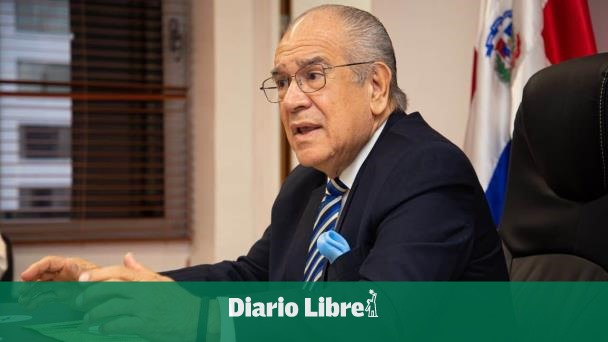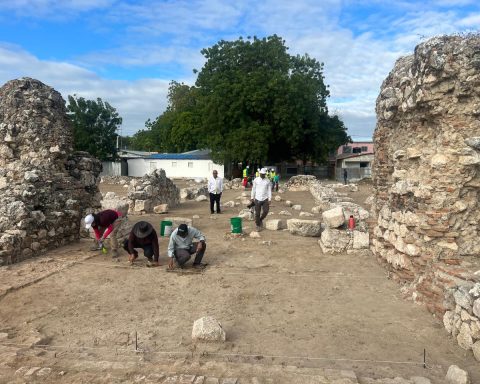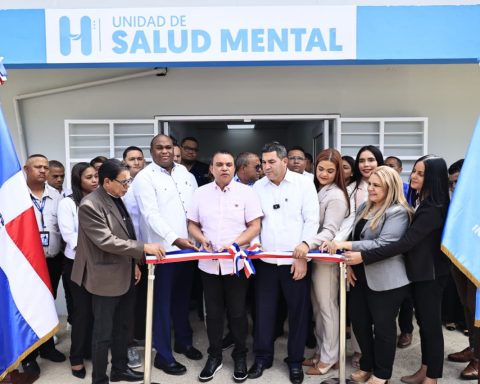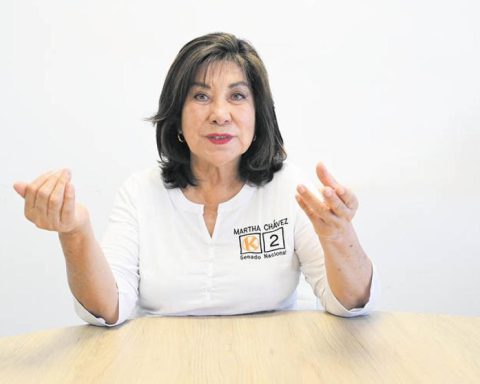The approval of the Resolution 553-02 proposed by the Superintendence of Health and Occupational Risks (Sisalryl) to reduce by 50% the copay of the Family Health Insurance (SFS) of the Contributory Regime for hospitalization services, caesarean sections, surgeries, kidney transplants and other diseases and high-cost medicines has generated uncertainty in private health.
the owner of the Sisalryl, Feris Iglesiasclarified that, in effect, the inclusion of new procedures and the expansion of coverage is not a measure to benefit health providers (doctors, clinics) but rather the patient.
Regarding the doubt expressed by Rafael Mena, president of the Association of Private Clinics (andeclip), who said that the resolution does not make it clear who will assume the remaining 50% of the copay reduced, Iglesias specified that the document states that they are the Health Risk Insurers (ARS).
“They know it well, because the proposal was discussed with them in several meetings, one thing is to go to the newspapers and another thing is to tell the truth”, reproached.
The uncertainty of andeclipwho fears that with this resolution the clinics will be declared bankrupt, lies in the lack of liquidity by failing to receive half of the money paid by patients for the services offered.
Mena denounced that the ARS They do not make payments to the clinics within the regulated time after each service provided. Receiving less money from patients would reduce your ability to meet your expenses and debts in the short term. He indicated that regularly, “what sustains the clinics are loans.”
“The ARS they must pay within 10 days of presenting the invoice, but in practice it is variable, some last 45 days, others up to three months, depending on the case. The ARS with more capital they pay faster,” he said.
Medical fees
Although the Dominican Medical Association (cmd) complained, the resolution does not affect the dynamics of fee collection.
The complaint about the improper charges for medical fees outlined by Free Journal a month ago it has not been resolved with this resolution.
Feris Iglesias recalled that this is one of the health system’s most difficult problems to solve and that the Sisalryl studies how it will reduce the out-of-pocket cost in patients in this aspect.
“The fees are not committed there, that will have to come later to an agreement with the health professionals, looking for a middle ground, but what we do want is to reduce the out-of-pocket expense of social security,” he said.
Benefits
Iglesias explained that for hospitalization, caesarean sections and surgeries, the patient had to pay by event two minimum wages from the non-sectorized private sector, equivalent to the sum of 32,525 pesos as a Variable Moderating Quota. With the resolution, ARS will bear 50% of that copay and the affiliate will only pay RD$16,262.50.
In care related to procedures by high-cost diseases, the patient will pay the difference of one minimum salary per year, except for those that involve hospitalization.
In the care for kidney transplant, the patient will pay the difference of a minimum wage by year, even when it requires the association of other procedures of the Health Services Plan (PDSS).
Once the payment of a minimum salary has been exhausted as the maximum limit of the variable moderating fee for high-cost procedures and kidney transplant, the resolution specifies that “The ARS will grant the coverage required at 100%, until the available coverage of the affiliated patient is exhausted and/or until the contribution year is renewed.”
Medicines
The resolution expands and unifies the coverage of high-cost drugs for the treatment of cancer, neoadjuvant, adjuvant and palliative drugs to a cap of 2,090,000 pesos. In addition, it maintains coverage of one million pesos for all services to treat pediatric and adult cancer. These coverages will also apply to benign tumors.
Coverage for high-cost medications was also extended to one million pesos for other non-oncological pathologies, such as growth disorders, rheumatoid arthritis, systemic lupus erythematosus, kidney disease, hemophilia, immunodeficiencies, Kawasaki disease, thrombocytopenia purpura, gamma globulinemia, multiple sclerosis and other benign characteristics that require such treatments.
This coverage of one million pesos extends to procedures such as diagnostic laparoscopy, laparoscopic appendectomy and continuous dialysis therapies. The coverage of the materials and devices required for the use of the laparoscope was also approved with the resolution document.
Medical devices and materials
With Resolution 553-02, approved by the National Social Security Council (CNSS), the coverage of devices, materials and equipment for continuous use and necessary in the performance of minimally invasive procedures is included.
It is about the inclusion of electrocoagulation, hemostasis and mechanical sutures, microscope, neuronavigator, ultrasonic aspirator and neuromonitor for procedures contemplated in the Health Services Plan (PDSS), thus expanding access to devices that avoid the risk of trans-injury. and postoperative, as well as prolonged hospital stays, among others.
Transparency in billing
The resolution orders health service providers to issue in a single invoice the services provided to the member, identifying in it the amount covered by the medical insurance and the amounts charged to the members, including those services not covered by the PSSS.
The ARS they must authorize the health service providers the coverage of the PDSS and the established limits.
In addition, the resolution establishes that the ARS You must separate the account, taking into consideration that high-cost procedures and kidney transplants have limited coverage, so that other consumptions made to charges for other services contemplated in the catalog must be guaranteed unlimited.
However, it makes affiliates responsible for the maximum payment of a minimum wage, plus the costs generated by non-covered services, when using hospitalization, cesarean section, surgery, high cost and kidney transplant services.
Exception
In addition to medical fees, promotion and prevention, emergency, consultation, diagnostic support, rehabilitation, hemotherapy and outpatient medication services are exempt from this regulation.
Financing and application
The new inclusions in the catalog of services will have as a source of financing, the Health Care Account of the people of the SFS of the Contributory Regimebecause the monthly capita will rise from 1,327.81 pesos to 1,490.14 pesos due to inflation, for an increase of one per capita 162.33 pesos, corresponding to Contributory Regime. With the provision, additional affiliates were exempted, for whom the holders must pay said capitation.
This resolution will be applied retroactively for direct affiliates as of September 1 and for additional dependents it will come into force as of November 1 of this year.
The ARS must recognize the reimbursement by the affiliates and their direct dependents in expenses incurred for the benefits that they stopped receiving included in this resolution.
















